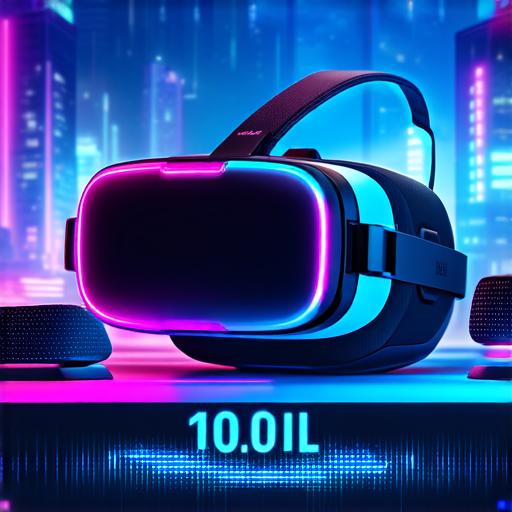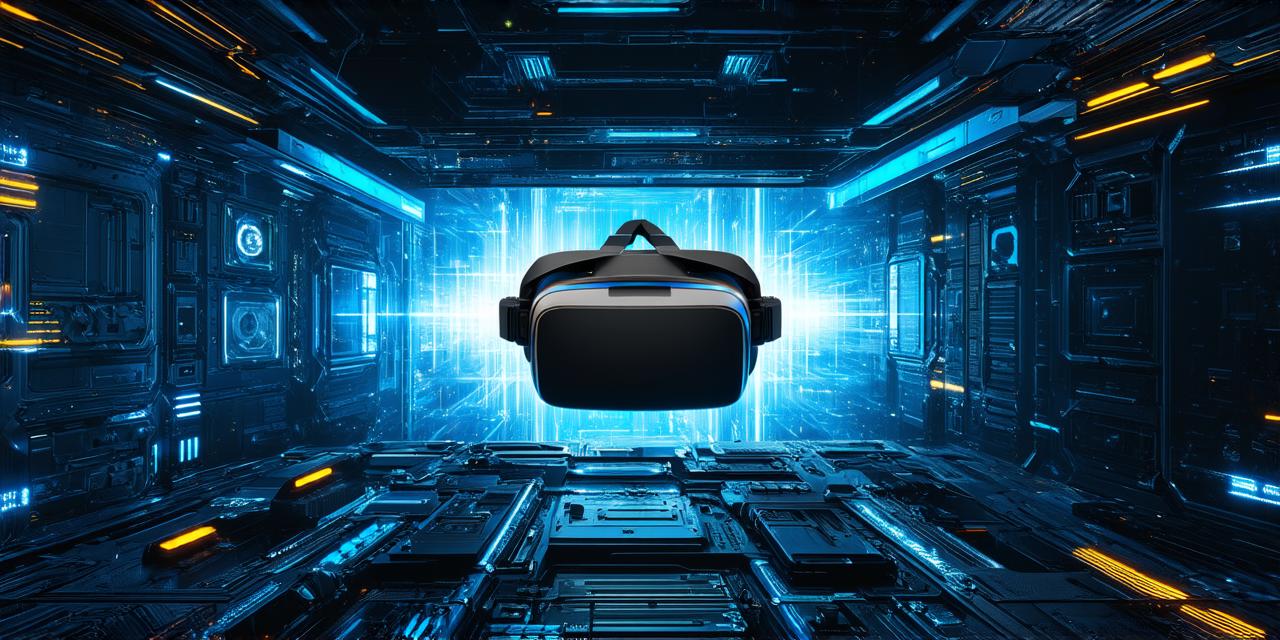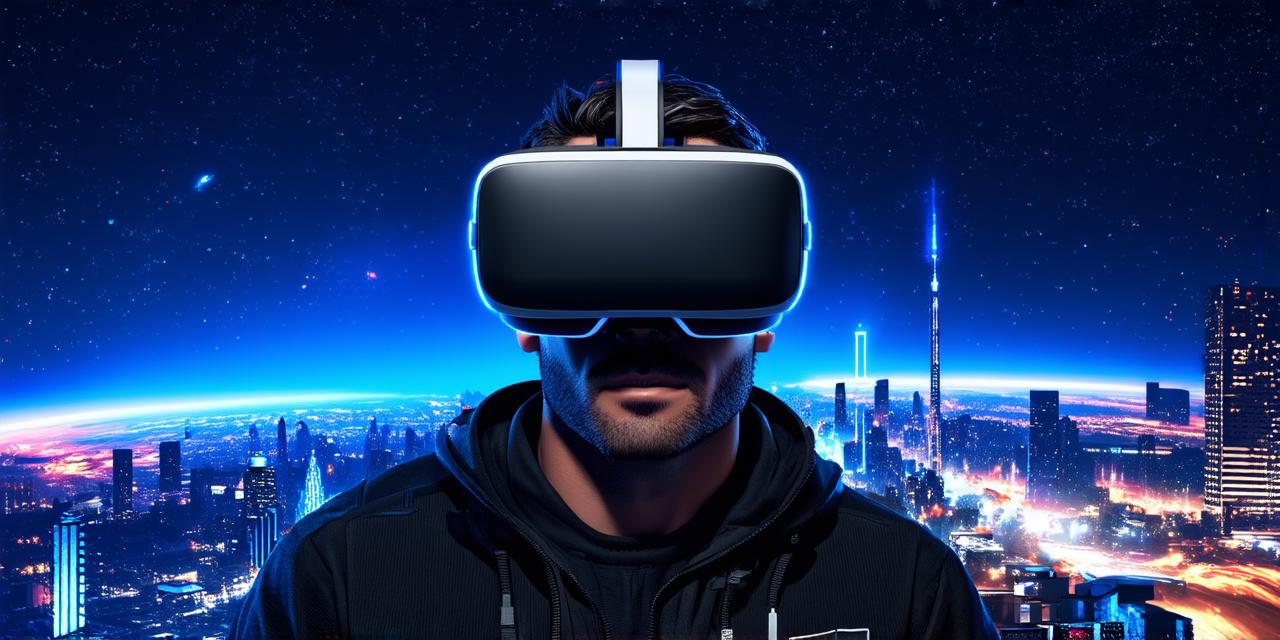Virtual reality (VR) is a rapidly growing technology that has captured the imagination of many people across the world. VR allows users to experience immersive environments and interact with virtual objects in a way that feels real. In this article, we will explore which companies are currently developing VR technology and what they are working on.
Samsung:
One of the biggest names in the electronics industry, Samsung is also a major player in the VR market. The company has developed several VR devices, including the Gear VR headset and the Galaxy S8 VR smartphone. Samsung has also been working on new technologies to improve the VR experience, such as eye-tracking and gesture recognition.
Oculus:
Oculus is another major player in the VR market. The company was founded in 2012 by Palmer Luckey, who later sold the company to Facebook for $2 billion in 2014. Oculus has developed several VR headsets, including the Oculus Rift and the Oculus Quest. The company is also working on new technologies, such as hand tracking and wireless connectivity.
HTC:
Hong Kong-based HTC is a leading manufacturer of smartphones and tablets. The company has also been working on VR technology, including the HTC Vive headset. HTC’s Vive is one of the most popular VR headsets on the market, with a focus on gaming and entertainment.
Sony:
Sony is another major player in the electronics industry and has also entered the VR market. The company has developed several VR devices, including the PlayStation VR headset. Sony’s VR technology is designed to be integrated into existing gaming platforms, such as the PlayStation 4.
Intel:
Intel is a major player in the semiconductor industry and has also been working on VR technology. The company has developed several technologies to improve the VR experience, including graphics processing units (GPUs) and virtual reality controllers. Intel’s GPUs are designed to handle the demanding graphics requirements of VR applications.
Google:
Google is one of the largest and most successful companies in the world and has also entered the VR market. The company has developed several VR devices, including the Google Daydream View headset and the Google Cardboard virtual reality viewer. Google’s VR technology is designed to be accessible to everyone, with a focus on mobile devices.
Microsoft:
Microsoft is another major player in the tech industry and has also been working on VR technology. The company has developed several VR devices, including the Microsoft HoloLens headset. Microsoft’s VR technology is designed to be integrated into existing Windows-based platforms, such as PCs and tablets.
Apple:
Apple is one of the most successful companies in the world and has also been working on VR technology. The company has filed several patents related to VR and has been rumored to be working on a new VR device. While Apple hasn’t officially announced any VR plans, it’s likely that the company will enter the market in the near future.
Case Studies:
One of the best ways to understand how VR technology is being used is through case studies. Here are a few examples:
1. Aviation:

Several airlines and aviation companies have been using VR technology to train pilots and simulate real-world scenarios. For example, United Airlines has been using VR to train its pilots for emergency procedures and weather conditions.
2. Healthcare:
VR technology is also being used in healthcare to treat patients with phobias and anxiety disorders. For example, the Virtual Reality Medical Center in California uses VR technology to treat patients with PTSD and other mental health conditions.
3. Education:
VR technology is also being used in education to provide immersive learning experiences. For example, the University of Maryland has been using VR technology to teach anatomy and physiology courses.
4. Gaming:
VR technology is also being used in gaming to create immersive gaming experiences. For example, the Oculus Rift headset has been used in several games, including “Beat Saber” and “Job Simulator.”
Expert Opinions:
To get a better understanding of the VR market and its future prospects, we spoke with several experts in the field. Here are their insights:
“Virtual reality is still in its early stages, but it has already shown tremendous potential,” says John Carmack, co-founder of id Software and lead developer of the Doom game franchise. “As the technology continues to improve, we’re likely to see even more exciting applications for VR.”
“Virtual reality is poised to disrupt several industries, including gaming, education, healthcare, and retail,” says Chris Malachowsky, CEO of Virtual Reality Medical Center. “The potential for VR technology is enormous, and we’re only just beginning to scratch the surface.”
“Virtual reality is still a niche market, but it has the potential to become mainstream in the coming years,” says Michael Abrash, a pioneer of virtual reality and author of the book “Abrash’s Laws: A Guide to 3D Programming.” “As more companies enter the market and invest in VR technology, we can expect to see a rapid growth in adoption.”
Real-Life Examples:
1. Real Estate:
Several real estate companies have been using VR technology to showcase properties to potential buyers and renters. For example, the New York Times recently created a VR tour of a luxury apartment building in Manhattan.
2. Travel:
Several travel companies have been using VR technology to provide virtual tours of destinations around the world. For example, the London-based company Virtual Reality Tourist has created VR tours of several cities, including Paris and New York City.
3. Sports:
Several sports teams and leagues have been using VR technology to provide immersive experiences for fans. For example, the NBA’s All-Star Game featured a VR experience that allowed fans to explore the host city in a virtual reality environment.
Summary:
Virtual reality technology is rapidly advancing, and we can expect to see even more exciting applications for VR in the coming years. As more companies enter the market and invest in VR technology, we can expect to see a rapid growth in adoption. Whether you’re a gamer, educator, or healthcare professional, VR technology has the potential to revolutionize the way you work and interact with the world around you.




